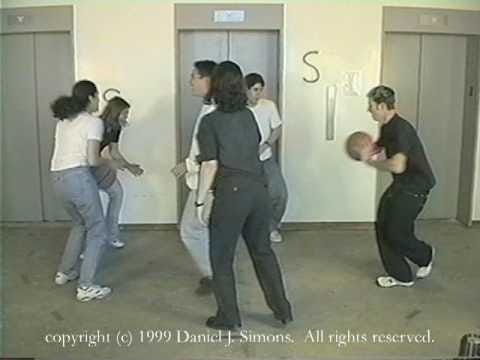Everyday Illusions #1: The Illusion of Attention
A crazy defect that we all succumb to on an everyday basis
Hello learners,
Last week we discussed the merits of reading history. Today, let’s turn our gaze to psychology.
We make mistakes every day. From the innocent ones, like licking that 3-liter tub of papaya ice cream clean in one sitting, to the more dangerous ones, like walking on the road with your face glued to images of curvaceous humans on social apps.
Life would be much better if we could avoid many of these glaring stupidities. But these are the very things that make us human, and it’s okay to err as long as the consequences aren’t severe.
However, we must constantly watch out for errors and illusions that can have a lasting impact on our lives and continuously work towards correcting them. And the mistakes that need the most attention are the ones that take birth in our minds without our knowledge.
The only remedy is to read, observe, reflect, and correct. And to help you do that, I have made a neat list of everyday illusions that plague our lives- illusions that we aren’t even aware of.
Today, we’ll be tackling the very first and probably the most intriguing one on the list.
The Illusion of Attention
Before I begin rambling, please watch this video. It’s a fun task, it won’t take more than a couple of minutes and will leave you with a shocking insight. (Please do it before scrolling to avoid being hit in the face by some spoilers)
Did you take the test? If you didn’t, I’d urge you to do it. There’s nothing like learning via personal experience.
Okay. Assuming that you finally succumbed to my urging (and demonstrated a bias for action), I want to ask: wasn’t that mind-blowing?
Even if you didn’t miss the gorilla, you’d be surprised to know that a staggering 50% of people miss it! This, dear friends, is called the illusion of attention, and it permeates our life much more than we think.
What makes it even more interesting is that people who participated in this research didn’t believe it when they’re told that they missed the gorilla. More than 70% believe that they’d definitely have noticed it if it were there- which, we know by experimental data, is certainly not true. So here we are- stuck with an illusion that we didn’t even know about. An unknown unknown.
You may be thinking that it’s all nice and interesting to miss a random gorilla in a video and the consequences end right about there. But that’s far from the truth and misses the deeper consequences of this inattentional blindness.
The thing is, this blindness affects us every day. We miss things that are in plain sight, we fail to notice things we should have noticed and all of these misses have major ramifications. We have all had those situations in which we turned the entire bedroom upside down looking for that comb…and it was sitting right in front of us, staring at our stupid faces. And yet, we weren’t able to detect its presence.
Much of the same happens in more consequential scenarios, and it can mean the difference between life and death.
Research has shown that pilots in simulations fail to notice planes on the runway and proceed with the landing- they failed to notice because they just didn’t expect the flights to be there! This is so common- we keep missing things that we don’t expect to find, and it has to do with the ways we perceive the world using our brain’s fascinating best-guessing mechanism (I discussed it here).
Another experiment shows that the same problems persist on the roads. Accidents often happen because the driver just didn’t notice a pedestrian and ended up crashing into them. It happens even more frequently in cities that have fewer pedestrians on the road (making it even more unexpected to find people on the road).
The worst part is that these illusions seem to emerge as a byproduct of the way our brains are wired- and they are the costs we pay for the ability to focus. No wonder people end up driving right into the sea, blindly following Google Maps when the signboards clearly warn them. We can’t help but occasionally succumb to these moments of blindness.
So what can we do about these gnarly situations? Simply telling people to be more alert doesn’t help- it works for very short durations and understandably so. Who the hell has the willpower to be alert 24/7?
There are a few pointers that we can keep in mind to prevent accidents:
If pedestrians wear clothes that are normal looking (instead of flashy), they’d be more easily identified by drivers. Even better if they can wear black clothes and look like cars because that is what drivers most easily detect on the road (but nobody’s got time for that shit, I know)
Avoid talking on the phone while driving. It uses up the limited cognitive resources we have- which should rather be spent on paying attention to the road and watching out for things we can easily miss. And no, using pods doesn’t really help because the problem of lowered alertness would still persist.
Be humble and observant. We all miss things all the time. Don’t get too nasty if someone accidentally does that, and don’t beat yourself up for succumbing to such incidents. Unless you were watching short videos. In that case, you totally deserve a nasty beating.
That’s it for today, folks. That’s one illusion that you are now at least aware of, if not immune to. We shall explore many more as we seek to become better versions of ourselves.
(This article is based on a nice, little book called ‘The Invisible Gorilla’)
Research also shows that subscribers of this newsletter become much smarter and end up getting a 48% hike at work. So what are you waiting for?




